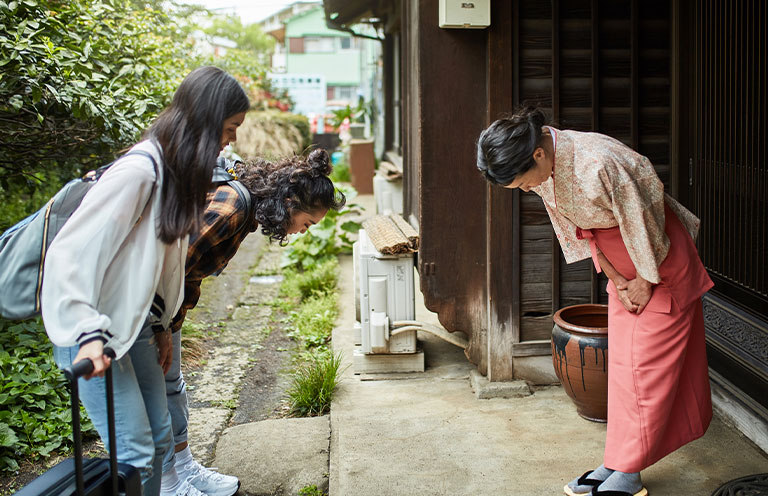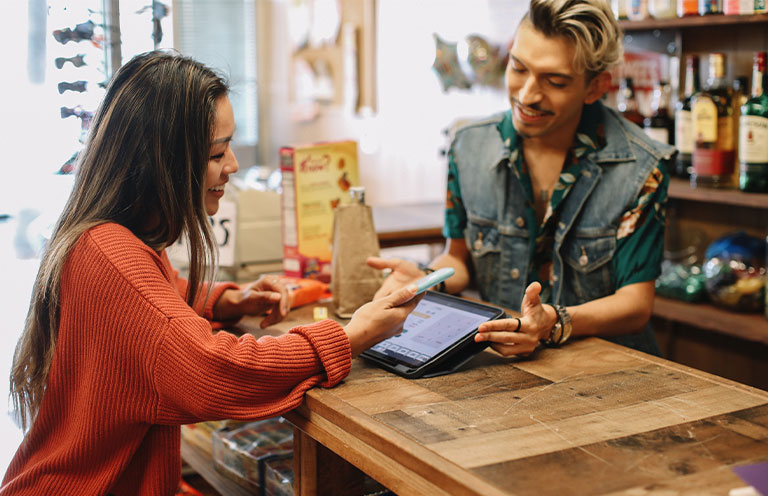
It’s easy for travelers to turn to language apps for quick answers, but learning how basic words and phrases are said locally is often more important. Local variations can affect travel scenarios ranging from casual conversation to life-threatening emergencies. Before you set off on your adventures abroad, be sure to study up on these common sayings.

Personal introductions and greetings
As we would at home, exchanging pleasantries such as “hello” and “goodbye” helps break the ice and start conversations in other parts of the world, too. Adding simple greetings such as “good morning,” “good afternoon,” and “good evening” shows respect and politeness, which can go a long way in new places.
“These words will really help you get by in your daily interactions and in case of an emergency,” says best-selling author and travel expert Matt Kepnes of Nomadic Matt.
“Where is…”
Map apps are convenient, but there are times when asking someone directly is faster, more accurate, or even necessary. Knowing common sayings such as “Where is…” along with common location words can make navigation easier.
“Maybe it’s the bus or train station, or a ticket counter or the bathroom,” says Mary Green, vice president and executive editor at Pimsleur Language Programs. “You might be wondering where to find the closest convenience store or your hotel or a particular restaurant or museum.”
“Please” and “thank you”
These magic words go a long way when responding to help from people on the street or interacting with staff at hotels, restaurants, shops, and attractions.
“’Thank you’ is a big one,” says Patricia Serrano of Fresh Traveler, a travel designer focusing on off-the-beaten-path luxury experiences . “I like learning it because it’s a word that expresses gratitude.”

“Do you speak English?”
While English is widely spoken around the world, it’s still useful to know how to ask if someone speaks it—especially in unfamiliar or remote areas. Common saysings such as “Do you speak English?” and “I don’t speak…” in the local language can help bridge the gap, along with knowing how to say “yes” and “no.”
Travel expert Jen Ruiz of Jen on a Jet Plane suggests learning the local word for “little” to help convey that you’re not fluent. “It also helps to know how to say ‘English’ in the language you’re using to ask if anyone is able to translate,” she adds.
Numbers
It’s helpful to familiarize yourself with how to say numbers in the local language—especially when dealing with prices and public transportation—or asking questions such as “How much?”
“Numbers are also important for times when you're ordering food, paying for something, or asking which bus or train to take,” says travel expert Jessie Festa of Jessie on a Journey.
“Pardon me” or “Excuse me”
Politeness is always important to practice, especially when you accidentally bump into someone or need to move around or past someone in a crowded area.
Ruiz prepared for a trip to Japan by studying words tied to etiquette, reflecting the country’s formality. “Learning how to say a version of ‘excuse me’ was important and used frequently throughout my visit to show respect,” she says.

“I need help”
In emergencies, you may need medical assistance or help from local authorities. “Phrases like ‘help’ or ‘I’m lost’ can be important if you find yourself in trouble,” says Festa. “It’s also smart to learn emergency phrases like ‘I need a doctor,’ ‘Where is the nearest hospital?’ and ‘Call the police,’ just in case.”
Kate McCulley, a travel content creator also known as Adventurous Kate, advises, “If you have a specific medical condition, you may want to know some basic words and phrases.”
Special dietary needs
Travelers with dietary restrictions or food allergies should learn how to clearly communicate needs to waitstaff. It’s also helpful to know how to ask “What is…” if you’re unsure about items on a menu.
McCulley adds that in countries for spicy cuisine, “it can be helpful to learn ‘not spicy’ and ‘a little bit spicy.’”
. . . . .
Along with online language learning programs, you can grasp words and phrases in casual ways like watching foreign language movies or TV shows with subtitles or following along with an instructional video on YouTube. After all, learning common sayings in another language is not only useful but can also be fun!

